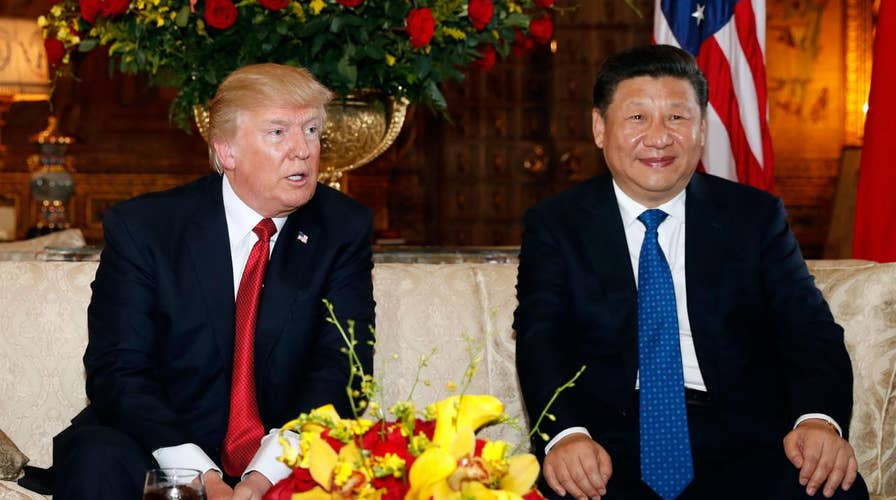US should apply economic sanctions on China: Steve Hilton
Fox News’ “The Next Revolution” host Steve Hilton says China is a bigger threat to the U.S. than the Soviet Union was in the cold war.
The Trump administration is considering sanctions against Chinese senior officials and companies in response to Beijing’s detention of one million ethnic Uighurs and other minority Muslims in indoctrination camps.
The White House has been considering sanctions for month now following the reports of internment camps in China, The New York Times reported. The issue became more urgent after U.S. Congress asked Secretary of State Mike Pompeo and Treasury Secretary Steven Mnuchin to take action.
The economic sanctions over human rights violations in China would be a first for the Trump administration. The U.S. would also seek to restrict American sale of surveillance technology that China uses to track and monitor its Muslim population in northwest China, according to the newspaper.
It remains unclear when the new American sanctions would be announced, as they are likely to undergo government-wide consultations.
President Trump has been bullish towards China and frequently criticized the country for what he sees as unfair trade arrangements, while pressing the regime to also contain North Korea, its closest ally, yet remained largely silent about human rights violations in China.
But diplomats and activists are raising concerns about the treatment of Chinese Muslims following reports of indoctrination camps in the communist country.
Multiple reports claim that at least one million Uighurs and other members of Muslim minority groups in the country's northwest have been detained in indoctrination camps where they are forced to denounce Islam and profess loyalty to the Communist Party. Some detainees who were later released said security officers tortured them on camps.
“The scale of it — it’s massive,” Florida Republican Sen. Marco Rubio told the Times. “It involves not only intimidating people on political speech, but also a desire to strip people of their identity — ethnic identity, religious identity — on a scale that I’m not sure we’ve seen in the modern era.”
Rubio was part of a group effort with other lawmakers to press the State and Treasury Departments to sanction Chinese companies, such as Hikvision and Dahua Technology, which profit off building the camps or surveilling the Chinese Muslims.
"The scale of it — it’s massive. It involves not only intimidating people on political speech, but also a desire to strip people of their identity — ethnic identity, religious identity — on a scale that I’m not sure we’ve seen in the modern era."
Human Rights Watch published on Sunday a shocking report that alleged the abuses were of a “scope and scale not seen in China since the 1966-1976 Cultural Revolution” when tens of millions of people died due to the communists’ actions. The report advised other government to impose sanctions on Chinese officials and other measures, according to the Times.
The abuses began in 2012, when President Xi, who recently became the most powerful Chinese leader since Mao Zedong, began his anti-religion campaign, with particular focus on Muslims in China, to cement his and the party’s power.
The Chinese government denied the existence of internment camps but assured that it’s working to tackle extremism. The officials described the program as “transformation through education” or “counter-extremism education,” according to the Times.
The Associated Press contributed to this report.





